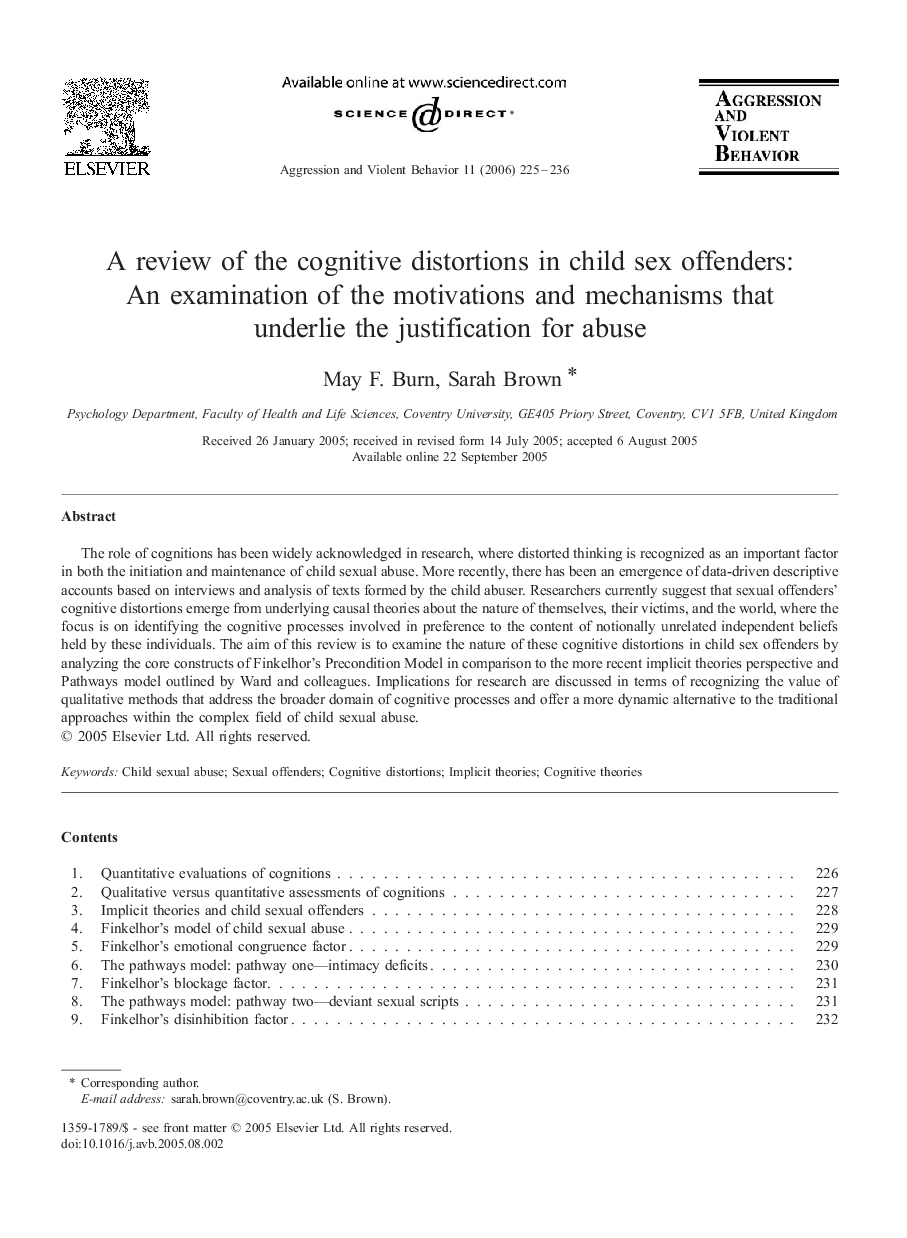| Article ID | Journal | Published Year | Pages | File Type |
|---|---|---|---|---|
| 95078 | Aggression and Violent Behavior | 2006 | 12 Pages |
The role of cognitions has been widely acknowledged in research, where distorted thinking is recognized as an important factor in both the initiation and maintenance of child sexual abuse. More recently, there has been an emergence of data-driven descriptive accounts based on interviews and analysis of texts formed by the child abuser. Researchers currently suggest that sexual offenders' cognitive distortions emerge from underlying causal theories about the nature of themselves, their victims, and the world, where the focus is on identifying the cognitive processes involved in preference to the content of notionally unrelated independent beliefs held by these individuals. The aim of this review is to examine the nature of these cognitive distortions in child sex offenders by analyzing the core constructs of Finkelhor's Precondition Model in comparison to the more recent implicit theories perspective and Pathways model outlined by Ward and colleagues. Implications for research are discussed in terms of recognizing the value of qualitative methods that address the broader domain of cognitive processes and offer a more dynamic alternative to the traditional approaches within the complex field of child sexual abuse.
